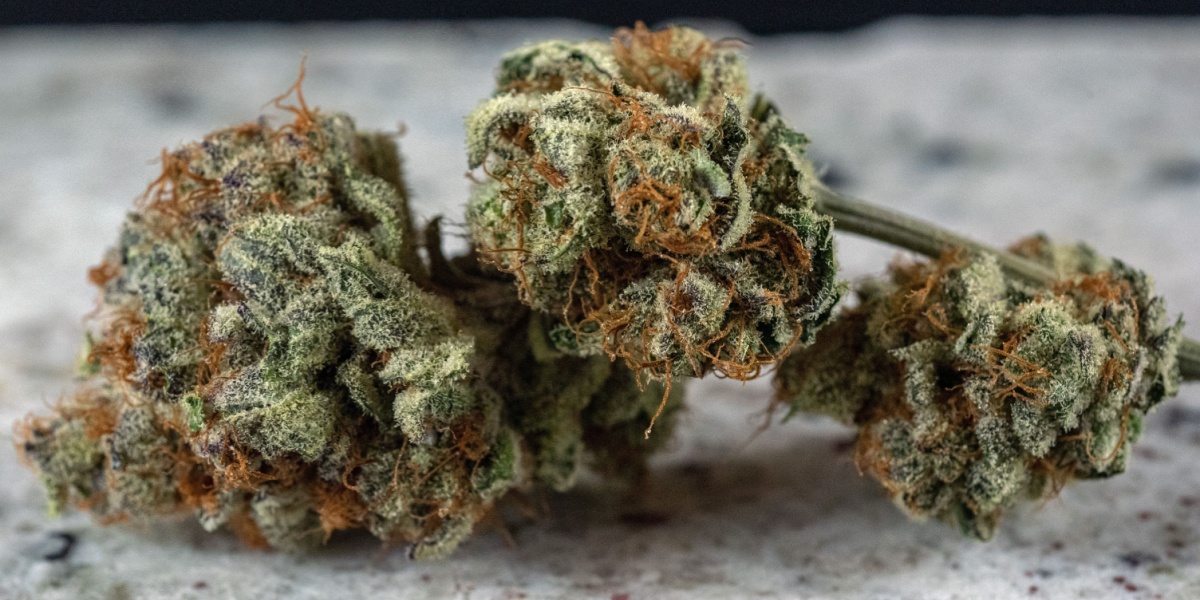Delta-10 THC is a semi-synthetic cannabinoid increasingly popular for its mild, euphoric effects. Although it naturally occurs in cannabis in extremely small quantities, most Delta-10 THC products are created by chemically converting cannabidiol (CBD) extracted from hemp.
Marketed as a smoother, more energizing alternative to Delta-9 THC—the primary psychoactive compound responsible for marijuana’s characteristic “high”—Delta-10 has quickly gained attention in the hemp market. Yet, despite its popularity, scientific understanding of its effects, safety profile, and legal status remains limited.
In this article, we will explore the key facts you need to know about Delta-10 THC, including its possible effects, safety considerations, legal complexities, and how it compares to other cannabinoids. Whether you are new to hemp-derived products or curious about emerging THC variants, understanding Delta-10 THC is essential to making informed decisions.
- Delta-10 THC is a structural analog of delta-9 THC and produces psychoactive effects, though likely milder.
- Delta-10 occurs naturally only in trace amounts in cannabis. Commercial delta-10 is typically synthesized from hemp-derived CBD, taking advantage of the hemp provisions in the 2018 Farm Bill.
- The legality of delta-10 THC is complicated. While it is federally legal under certain interpretations of the Farm Bill, at least 14 U.S. states have explicitly banned or restricted it due to its intoxicating properties and lack of regulatory oversight.

What is Delta-10 THC?
Delta-10-tetrahydrocannabinol (Δ10-THC) is one of several THC variants that have entered the market via hemp processing. Chemically, it is an isomer of delta-9 THC, meaning it has the same structural components, just arranged differently. [1]
The key difference is the location of a double bond on the carbon chain. In Delta-10 THC, this double bond is on the 10th carbon atom, while in Delta-9 THC, it's on the 9th. This difference causes them to exert different levels of psychoactive effects. Anecdotal reports suggest Delta-10 produces milder psychoactive effects than Delta-9 THC. [1]
After the 2018 hemp law change affecting Delta-9 THC, manufacturers learned to convert CBD into delta-8 and delta-10 THC. [2] Manufacturers isomerize hemp-derived CBD (using acids or solvents) to create Delta-10 THC. While this synthetic route has made the compound more widely available, it has also raised concerns about product purity, given that residual solvents or byproducts can remain if the conversion process is poorly executed. [3]
Psychoactive effects and potential benefits
Delta-10 THC does have psychoactive properties, meaning it produces a cannabis-like “high.” People who use Delta-10 THC commonly describe the effects as similar to a milder version of Delta-9 THC. Anecdotally, it may induce euphoria, relaxation, and altered perceptions, potentially with slightly less intensity or anxiety than Delta-9 THC. However, scientifically, very little data exists on Delta-10’s potency or pharmacology. [1]
As for benefits, no specific medical or therapeutic benefits have been confirmed for Delta-10. Any claims about pain relief or other health uses are yet to be proven. Like Delta-8, Delta-10 is not FDA-approved for any medical purpose and is used recreationally rather than as a validated treatment. [4][5]
Balancing curiosity with caution
While it is tempting to view Delta-10 as a milder, friendlier cousin to Delta-9 THC, remember that every person’s endocannabinoid system is unique, and reliable evidence on its effects is limited. Genetics, tolerance, and personal chemistry can all affect one’s experience with Delta-10. In other words, a pleasant, moderate effect for one person could feel more intense or disorienting for another. [6]
Safety concerns and side effects
Delta-10 THC causes side effects similar to other THC forms. Common adverse effects include: [7]
- Drowsiness
- Dry mouth
- Elevated heart rate
- Anxiety
- Paranoia
Higher doses have led to confusion, hallucinations, or coordination problems in some instances. Some reported cases have required hospital treatment, especially when young children accidentally ingested Delta-10 edibles. [7] Young children and older adults appear to be especially vulnerable to severe outcomes if they consume Delta-10 edibles.
Product safety
Delta-10 products are unregulated. Therefore, purity and labeling are inconsistent. Some items have been found to contain residual solvents or other contaminants and lack proper warning labels or child-proof packaging. [7]
Without oversight, consumers cannot know the true potency or ingredients. Although long-term data is lacking, heavy use of Delta-10 could likely carry similar risks to heavy cannabis use (e.g., dependence or cognitive effects), so caution and moderation are advised.
Consumption methods: How do you take Delta-10 THC?
Delta-10 THC can be consumed in similar ways to cannabis or other hemp derivatives:
- Inhalation (vaping Delta-10 extract or smoking Delta-10-infused hemp material) produces effects within minutes and allows quick dose titration.
- Oral ingestion via edibles (gummies, candies, and beverages) leads to a delayed onset (typically 30–60+ minutes) but longer-lasting effects; dosing must be careful to avoid taking too much during the delay of onset.
- Tinctures (sublingual oils) provide an intermediate onset (15–30 minutes) by absorption under the tongue.
- Infused flower: Some retailers spray Delta-10 THC distillate onto hemp flower, creating a smokable product that combines CBD and Delta-10.
Who should avoid using Delta-10 THC?
Certain people should particularly avoid Delta-10 THC, given its risks and unknowns: [7]
- Children and adolescents
- Pregnant or breastfeeding women
- People with heart conditions
- People with severe mental health disorders
- Anyone subject to drug testing
- People with a history of substance use disorders (SUD)
Delta-10 vs. Other cannabinoids
Various cannabinoids have small differences in their molecular structure, which leads to variations in their clinical effects, safety, addiction potential, and therefore legality.
Delta-10 vs. Delta-9 THC
Delta-9 THC is the primary psychoactive component of marijuana; Delta-10 THC is a minor analog produced from hemp. Delta-9 is more potent and well-studied; Delta-10 tends to produce a slightly milder high by comparison.
Both cannabinoids cause similar effects (euphoria, altered perception, and increased appetite) by activating CB1 receptors in the brain. The main difference lies in legal status: Delta-9 THC is strictly controlled (illegal federally outside of state-regulated cannabis programs), whereas Delta-10 was initially legal via the hemp loophole. [2]
Delta-10 vs. Delta-8 THC
Delta-8 THC is very similar to Delta-10 in origin and effects. Delta-8 has been far more widely used–it has been the most common hemp-derived THC product on the market. [2]
Regarding the user experience, there is no apparent difference in their effects; some anecdotal evidence suggests that both provide a comparable mild high. In contrast, other anecdotal reports show that it is less potent. [3]
Legally and safety-wise, states typically treat Delta-8 and Delta-10 the same. That is, any bans or regulations usually apply to both. The same precautions (such as avoiding child access and ensuring product purity) are advisable for Delta-10, just as for Delta-8.
Delta-10 vs. THCP (Tetrahydrocannabiphorol)
THCP, or tetrahydrocannabiphorol, is a newly discovered cannabinoid known for its unusually high potency. THCP binds to cannabinoid brain receptors up to 30 times stronger than Delta-9 THC, making its psychoactive effects exceptionally intense. In comparison, Delta-10 THC is relatively mild, providing users with a gentle, more manageable experience. [2][3]
Due to its extreme potency, THCP may significantly increase the risk of adverse side effects, such as anxiety, paranoia, and dizziness, particularly among inexperienced/new users. As with Delta-10, THCP emerged initially through loopholes in hemp-derived product regulations, but its potent effects have led many states to ban or strictly regulate its sale and use. [3]
Delta-10 vs. THC-O (THC-O-Acetate)
THC-O (THC-O-acetate) is a synthetic cannabinoid known for effects that can be much stronger and more intense than those of traditional THC variants. Unlike Delta-10’s milder and stimulating experience, THC-O produces powerful psychoactive effects, sometimes described as psychedelic. THC-O's effects also take longer to start working, but they tend to be significantly more profound and long-lasting when they do. [3]
Its synthetic production methods raise concerns about THC-O’s safety, including product purity and potential contaminants. While THC-O initially benefited from legal loopholes, its potent effects and synthetic nature have prompted increasing scrutiny and tighter regulations from state authorities, similar to Delta-10. [3]
Delta-10 vs. HHC (hexahydrocannabinol)
HHC (hexahydrocannabinol) is another cannabinoid that has grown in popularity due to its moderate psychoactive effects. Chemically altered through hydrogenation, HHC is more stable and less likely to degrade over time than Delta-10 THC. People who use HCC describe its effects as stronger than Delta-10 but typically milder than Delta-9 THC, offering balanced relaxation, mild euphoria, and clarity of mind. [3]
Like Delta-10, HHC initially found legality through hemp-derived product loopholes, but concerns over its psychoactivity and unclear long-term effects have led to increased regulation and outright bans in many jurisdictions. [3]
Legal status of Delta-10 THC
Under federal law, Delta-10 THC is generally legal when derived from hemp, due to a loophole created by the 2018 Farm Bill. [8] That law removed hemp (cannabis with ≤0.3% Delta-9 THC) from the Controlled Substances Act, and many lawmakers did not realize it effectively legalized intoxicating THC variants like Delta-8 and Delta-10. [9] Over time, the loophole faced scrutiny: the DEA stated certain synthetic THC analogs (e.g., THC-O acetate) are illegal, and Congress is considering stricter hemp rules. [8][9]
State laws vary widely. As of 2024, at least a dozen states (e.g., Alaska, Colorado, Idaho, Montana) have banned or limited Delta-10, treating it as an illegal THC isomer. [3][10]
Other states (like Oregon) effectively prohibit synthetic hemp cannabinoids via regulation, while some impose age or licensing restrictions rather than outright bans. [10] At the federal level, Delta-10 remains federally legal, but lawmakers are considering closing this loophole. [9]
Harm reduction tips
- Delay use: Try delaying the first use of delta-10 until later in the day.
- Choose safer ways of using: Consider using a vaporizer instead of smoking.
- Don’t hold the smoke in: Avoid inhaling too deeply and holding one’s breath increases the risk of lung damage and doesn’t increase the effects of the drug.
- Check-in with your moods and emotions: Delta-10 use can impact your mental health. It can increase the risk of developing paranoia, depression, anxiety, hallucinations, or psychosis, especially if you have a predisposition to one of these conditions.
- Be prepared and careful: Delta-10 can affect your decision-making, perpetuating risky behavior. It's always good to plan for transport home to avoid drug driving, having your phone charged, and being prepared for safe sex.
- Don’t drive under the influence.

-person-thumbnail.jpg?v=1758880627)

-vs-THC-and-Other-Cannabinoids-guide-detail.jpg?v=1743497837)
-guide-detail.jpg?v=1743497891)